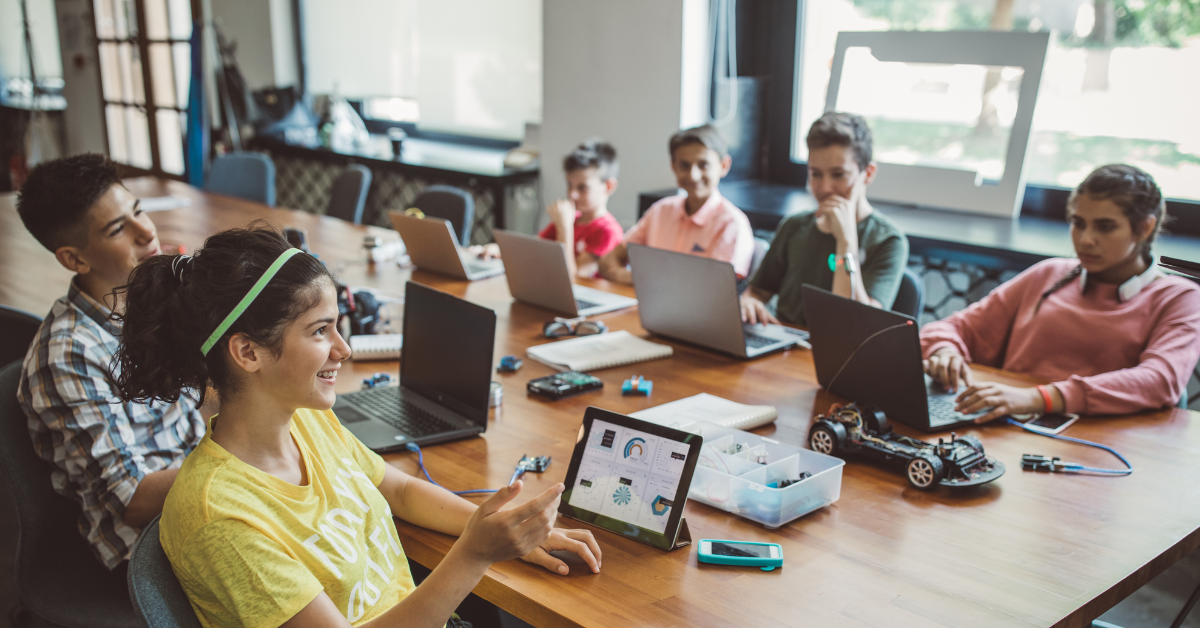Education plays a significant role in this change and Microsoft published a sharp piece of research recently, examining this. In this research, “The Class of 2030 and life ready learning: The Technology imperative”, the study was extensive, involving input from 70 leaders, a review of 150 pieces of existing research, and surveys with 2,000 teachers and 2,000 students from Canada, Singapore, the United Kingdom, and the United States. The main focus was to examine the needs and ambitions of the children today who would become the class of 2030, as well as those closest to understanding and shaping their world.
Education plays a significant role in this change and Microsoft published a sharp piece of research recently, examining this. In this research, “The Class of 2030 and life ready learning: The Technology imperative”, the study was extensive, involving input from 70 leaders, a review of 150 pieces of existing research, and surveys with 2,000 teachers and 2,000 students from Canada, Singapore, the United Kingdom, and the United States. The main focus was to examine the needs and ambitions of the children today who would become the class of 2030, as well as those closest to understanding and shaping their world.
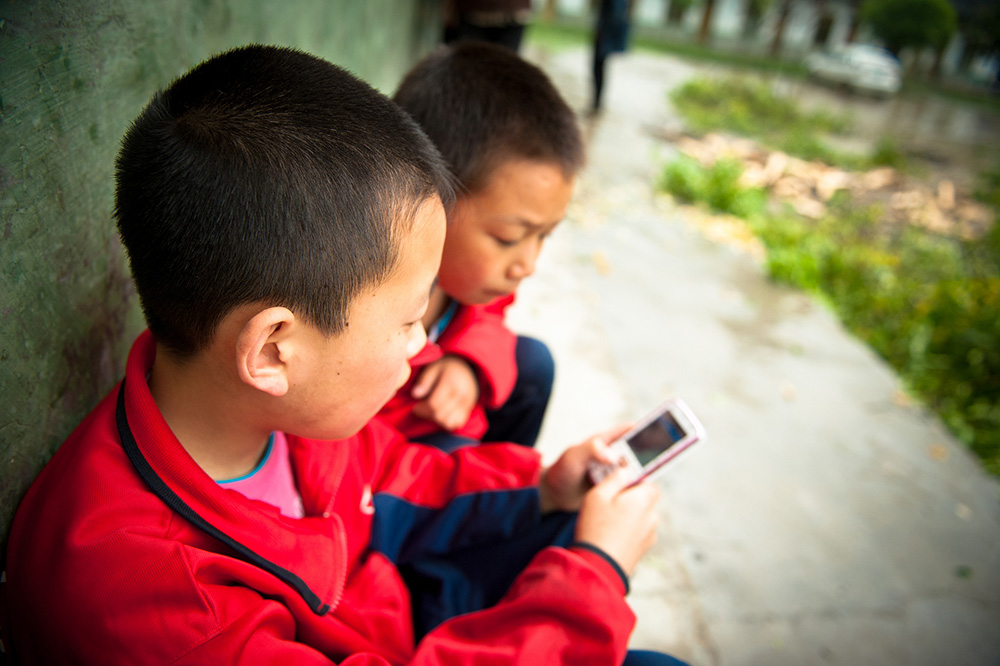
While these features are not new to education, are now important as employers are beginning to settle a premium on social and emotional literacy – with up 40% of future jobs requiring social and emotional competence. Besides, it has to be mentioned that school organizations have recognized the impact of these cases on students, identifying them as crucial components critical to how students thrive and succeed. In fact, personalized learning that supports skill development, in both a cognitive and social manner, is a driver for higher autonomy and control in students.
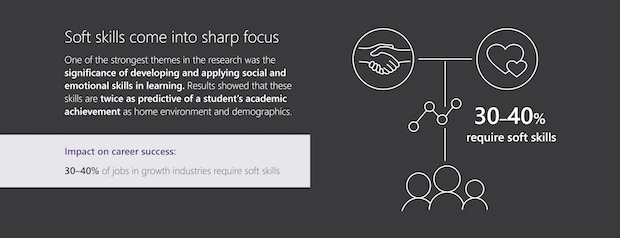
Tools that foster personalized learning.
”It is a fact that, teaching as a profession is projected to grow by 3 to 9% in the next decade. But teaching will shift to more of a coaching model, as technology advances allows teachers to spend less time on routine tasks and give them new ways to understand and interact with their students”, according to the research.
Even the students themselves revealed a desire to improve their social and emotional skills. This desire included the ability to explore and make choices that expedited their curiosity and potential and to have teachers understand them as individuals. These students also prioritized social-emotional and higher-order skills, prominently digital skills, creativity, and problem-solving. The research highlighted three technologies that are promising and powerful for supporting these core needs.
- Collaboration platforms: Business software that adds broad social networking capabilities to work processes. Students can interact and work together, and teachers will discover new ways to engage their professional communities and provide personalized feedback to the students.
- Artificial Intelligence (AI): Engagement with AI allows for higher curation of content. It also makes it easier for teachers and schools to understand students’ progression.
- Mixed reality: It is the merging of real and virtual worlds to produce new environments and visualizations where physical and digital objects co-exist and interact in real time. With mixed reality, students will have immersive learning experiences, and this will foster increased cognitive and social-emotional growth.
The class of 2030 is the destiny of our increasingly futuristic world. This generation will face social and global problems that we have not seen before. By equipping them to learn and engage with each other, as well as with the digital world that surrounds us, they can be qualified to enter a workforce, different than any other we have faced until today.
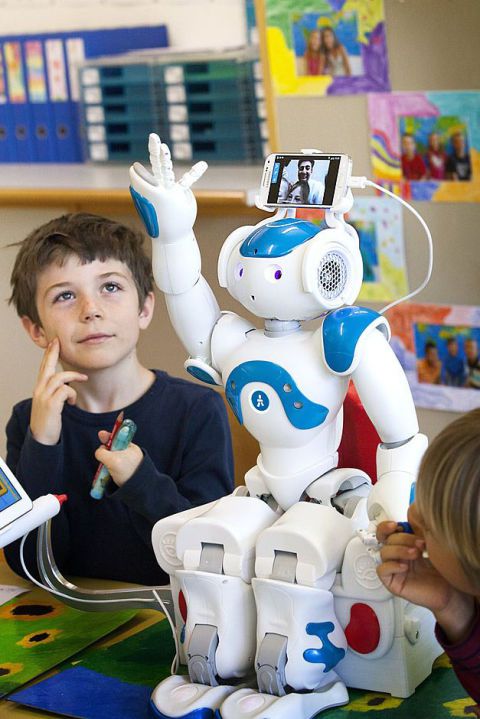
Facts about the Class of 2030:
- They will not know life without smartphones.
- They will store their whole lives on their smartphones.
- They will probably carry portable AI devices.
- They will also carry pocket-sized computers.
- Their school will submit a lot of e-classes.
- Textbooks will be a sweet memory of the past.
- They will be taught in part by “Teaching Robots.”
- Their education will be individualized.
- They could have phones implanted in their heads.
- Their clothing could connect to the internet.
- Their cars will be 3D-printed.
- They will not need to take standardized tests to get into college.
- Half of today’s traditional universities will no longer exist.
- They will be known as Generation Alpha.
- They will also be known as “screenagers.”
- They will be the most diverse generation yet.
- They may also be the wealthiest generation ever.
- They will not know what a check is.
- On the bright side, they will live longer.
For these reasons, current educational techniques need to be better aligned with what we know about learning: different students develop and learn at different rates. They learn best when they find the subject theme exciting and relevant, therefore, there is an increasing demand for personalized and adaptive learning techniques.
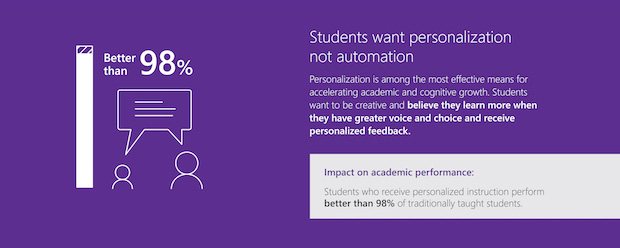
There has been an unprecedented shift from the standard software solutions which were developed to meet organizational needs because technology has evolved in recent years.
The impact of automation on occupations
According to McKinsey’s Global Institute (MGI) research, there is an estimation that globally, about 50% of the work people are doing today could be automated by existing technology by 2030. However, the qualities of the job market demands will shift in significant ways.
Besides, MGI predicts that new jobs created by technology, rising incomes, and consumption as well as by investments in infrastructure and renewable energy will fuel steady growth in global employment.
In the future, the job market will demand professions with cognitive abilities in numeracy, problem-solving, critical thinking and creativity. The highest growth will be in occupations that are easily automated and linked to macroeconomic trends such as aging populations, rising incomes and higher spending on technology. Education will be one of the professions to grow in the next decade, and educators’ role will have a steep rise in importance.
These changes will affect the way primary and secondary education systems, around the world, need to help students increase their social-emotional skills and extend their cognitive abilities.
FAQ’s
Personalized and adaptive learning techniques cater to individual students’ needs, interests, and learning styles, enhancing engagement and promoting effective learning outcomes.
McKinsey’s research predicts a shift in job market demand towards professions requiring cognitive abilities such as numeracy, problem-solving, critical thinking, and creativity, with education being one of the professions expected to grow significantly.
Yes, Classter’s platform is designed for seamless integration with various educational technologies, including collaboration platforms and mixed reality tools, enabling holistic and interconnected learning experiences.

